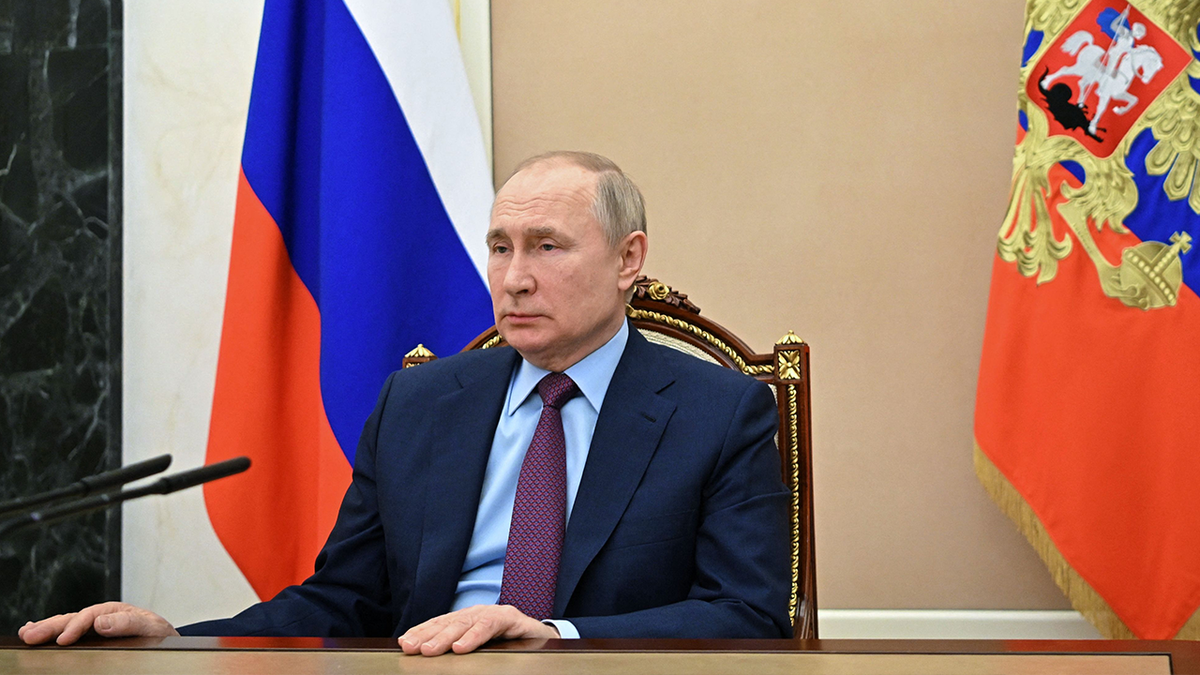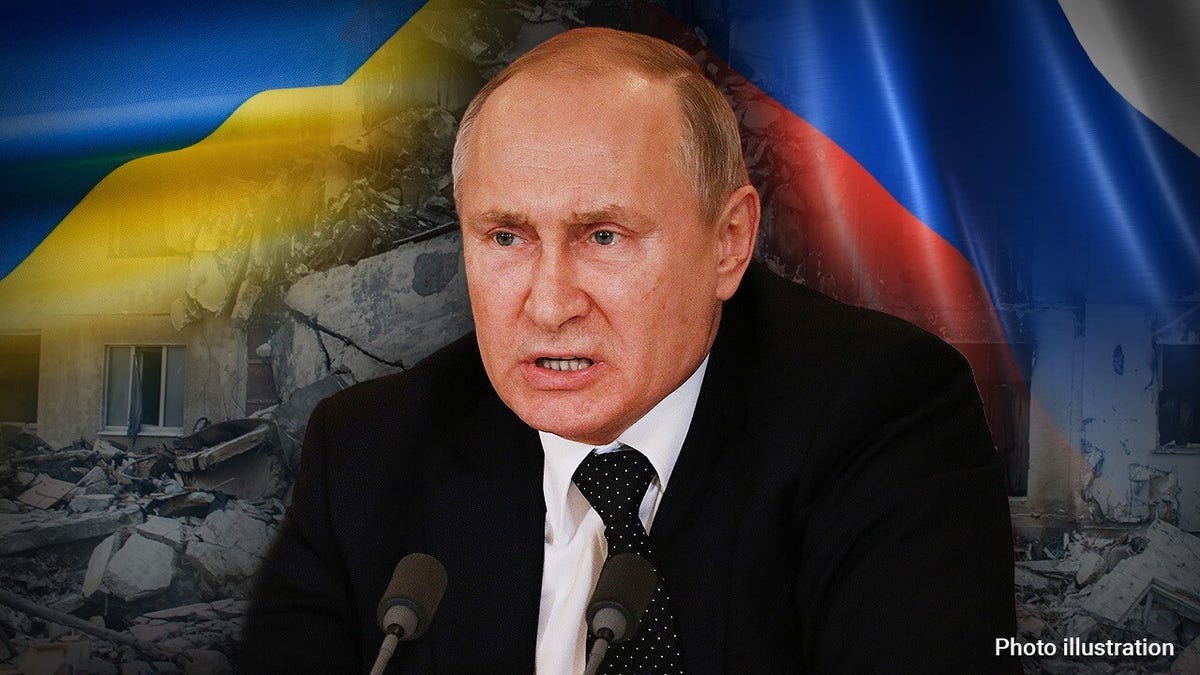Sen. Marco Rubio touts bipartisan pressure 'dragging the president to lead' on Ukraine
Sen. Marco Rubio, R-Fla., joined 'The Faulkner Focus' to discuss the Biden administration's response to Putin's assault, rejection of no-fly zone over Ukraine.
In his address before Congress Wednesday, President Volodymyr Zelenskyy reminded U.S. policymakers that the war in Ukraine is far from over. Nevertheless, the American people want to know what to expect from the next few weeks. It’s an important question to ask, but unfortunately, it only has a partial answer.
Three weeks into the conflict in Ukraine, Vladimir Putin is hardly any closer to achieving his strategic objectives than when he began. It should now be clear to everyone, including Putin himself, that deciding to invade Ukraine was the greatest miscalculation of his career.

Russian President Vladimir Putin use state-run media to spread the Kremlin’s message. ( )
It’s not hard to see why the Russian dictator was optimistic at the onset of conflict. Putin’s foreign policy forays in Crimea and the Middle East, enabled by the absence of serious resistance from the West, boosted his confidence in the Russian military.
The high price of energy, meanwhile, foretold a halfhearted European response to future aggression. And like all authoritarians, Putin was surrounded by yes-men, not genuine strategists.
But things have not gone as planned for the Kremlin. The West has issued a strong, unified response, one that is crushing the Russian economy and empowering the resistance in Ukraine. Most of all, the fighting spirit of the Ukrainian people, which surprised even our own intelligence community, has proven a match for the Russian military.
What Putin thought would be a quick win has turned into a century-defining disaster and potential quagmire. And yet, this is not the time to pat ourselves on the back. Greater dangers lie ahead – for Ukraine, but for America and the world, too.
Policymakers need to understand that Putin’s risk tolerance will be higher now than it was a month ago, or even a week ago. Authoritarian dictators rarely retire peacefully. Moreover, every major Russian change of government was preceded by defeat in war. Faced with failure, Putin will likely escalate the conflict – bomb more civilians, target international aid corridors, ramp up his cyberwarfare – to regain bargaining power.
CLICK HERE TO GET THE OPINION NEWSLETTER
"Escalate to deescalate" is a tenet of Russia’s military doctrine that we are seeing in real time, as the death toll of women and children rises. This week, international journalists, including American citizens, were injured by Russian munitions, several tragically dying from their wounds. With Putin growing increasingly desperate, we may even expect attacks like these to be committed intentionally. No one will be safe.

But that doesn’t mean Putin gets a veto on what the U.S. can and can’t do to help Ukraine. On the contrary, it means policymakers must communicate clearly to Putin that escalating the conflict and harming Americans will only incur more severe consequences for Russia’s military and economy.
CLICK HERE TO GET THE FOX NEWS APP
The Biden administration must send more military supplies to Ukraine, as Republicans urged earlier this week. It must also make clear that while we do not seek a broader conflict, we will neither lift sanctions nor cease providing defensive weaponry to Kyiv unless the Kremlin agrees to a resolution that preserves Ukraine’s sovereignty and democracy.
It’s impossible to predict how the conflict in Ukraine will play out. Too much of it is in the hands of one man, a man who, against reason, continues to send Russian sons to die for a meaningless cause.
One thing is certain, though — that man cannot achieve true victory. The Biden administration must continue to make that clear, in the hope that Putin will eventually acknowledge he has lost.















































